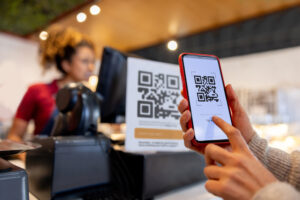Cybersecurity secures the way, data privacy keeps your information safe and fraud stops here.
Cybersecurity, fraud prevention, and data privacy are closely connected pillars of digital safety. Cybersecurity protects systems and networks from threats like malware and social engineering tactics like phishing, vishing, smishing and quishing which may lead to data being leaked. Fraud prevention tackles deceptive or criminal activity aimed at financial or personal gain. Data privacy safeguards sensitive information, respects customer privacy, and ensures compliance with regulations. Together, these disciplines form a powerful shield: Cybersecurity helps block unauthorised access, fraud prevention stops exploitation, and strong privacy practices build customer trust. Only by combining all three individuals and organisations can effectively defend today’s evolving digital threats.
To report an incident, contact your local Absa fraud hotline available below
Top cybersecurity tips
Protect your money. Protect your story.
- Always verify unexpected requests for personal information or money.
- Never share your one-time PIN (OTP) codes or credit card information with anyone.
- Beware of fake promotions asking for personal details.
- Don't trust unsolicited calls claiming urgency from your bank.
- Confirm that a link is legitimate before clicking on it.
- Always verify unexpected "wins" or lottery messages before taking any action.
- Avoid using public Wi-Fi for financial transactions.
- Research investment opportunities before investing.
- Be wary of job offers that ask for upfront fees for training, equipment or licenses.
- Use official apps only for all transactions.
Everything you need to know about cybersecurity
Criminals can trick you into sharing sensitive information or make you think that your accounts have been blocked or hacked. Learn about the different types of scams that they use and how you can report suspicious or unusual activity.
Stay alert to phishing emails, vishing scams (voice calls) and smishing (SMS messages). Always verify before sharing sensitive information, and ensure that your devices and connections are secure.
Common scams and their meanings:
Quishing

Quishing, or QR phishing, is a cybersecurity threat where attackers use altered QR codes to redirect their victims to fake websites or prompt them to download harmful content after scanning a QR code.
Phishing

Phishing is a form of fraud in which criminals use deceptive links in emails to manipulate individuals into disclosing sensitive data, including passwords, OTPs and credit card details.
Vishing

Vishing, also known as voice phishing, is a type of phone fraud through which attackers pose as legitimate organisations to manipulate victims into disclosing sensitive information, including passwords, OTPs and credit card details.

Top data privacy tips
Your story deserves privacy—not data theft
- Share personal data only with trusted websites and apps.
- Be selective about what you post online.
- Be aware of how companies gather and use your personal information.
- Always read a company’s data privacy rules or privacy notice before sharing your information.
- Ensure that you engage with organisations that priorities and adhere to data protection laws.
- Keep your bank card in sight and monitor statements for suspicious activity.
- Adjust your device settings to control location sharing and similar permissions.
- Delete unused apps to prevent unintended data sharing.
- Review app and website requests for access to your contacts, photos and locations.
What can I do to protect myself?
Although we have various security measures in place to protect you, your awareness is the key to avoid being a victim of phishing attacks, so bear the following in mind when you receive an email claiming to be from Absa:
- Absa will never send you an email with a link or attachment that redirects you to what looks like a login page requesting your username, password and, at times, your smartphone and Banking App passcodes.
- Never login to your bank’s website through a link in an email, even if the email appears to have come from your bank. Type the web address into your browser yourself.
- When you are on a secure banking website, a locked padlock symbol will appear in your browser window. This means that you are in a secure environment for banking or making online payments.
- Never download remote access software or give anyone access to your desktop, laptop or cellphone.
If you think that your banking profile might have been compromised, contact us immediately.
Top fraud tips
Don’t let fraud into your story
1. Double-check any unexpected money requests before acting.
2. Keep your OTP codes and credit card details private at all times.
3. Be alert to fraudulent promotions seeking your personal data.
4. Treat all unexpected banking calls with suspicion until verified.
5. Always verify links before clicking, particularly in emails or texts.
6. Use only official banking apps for transactions.
7. Avoid logging into financial accounts on public or shared Wi-Fi.
8. Take time to fully understand an investment before proceeding.
9. Cross-check unexpected wins, prize messages and lottery notifications.
10. Be cautious of job offers that require upfront payments for training, equipment or licences.

Absa ISO
Absa’s Chief Security Office is ISO: 27001 certified, an internationally recognised accreditation that demonstrates an organisation's commitment to establishing, implementing, maintaining, and continually improving an information security management system (ISMS) to protect its information assets.
Cybersecurity Academy
Click here for more information on the Absa Cybersecurity Academy
.png)
.png)
.png)
.png)
.png)
.png)
.png)

.png)
.png)
